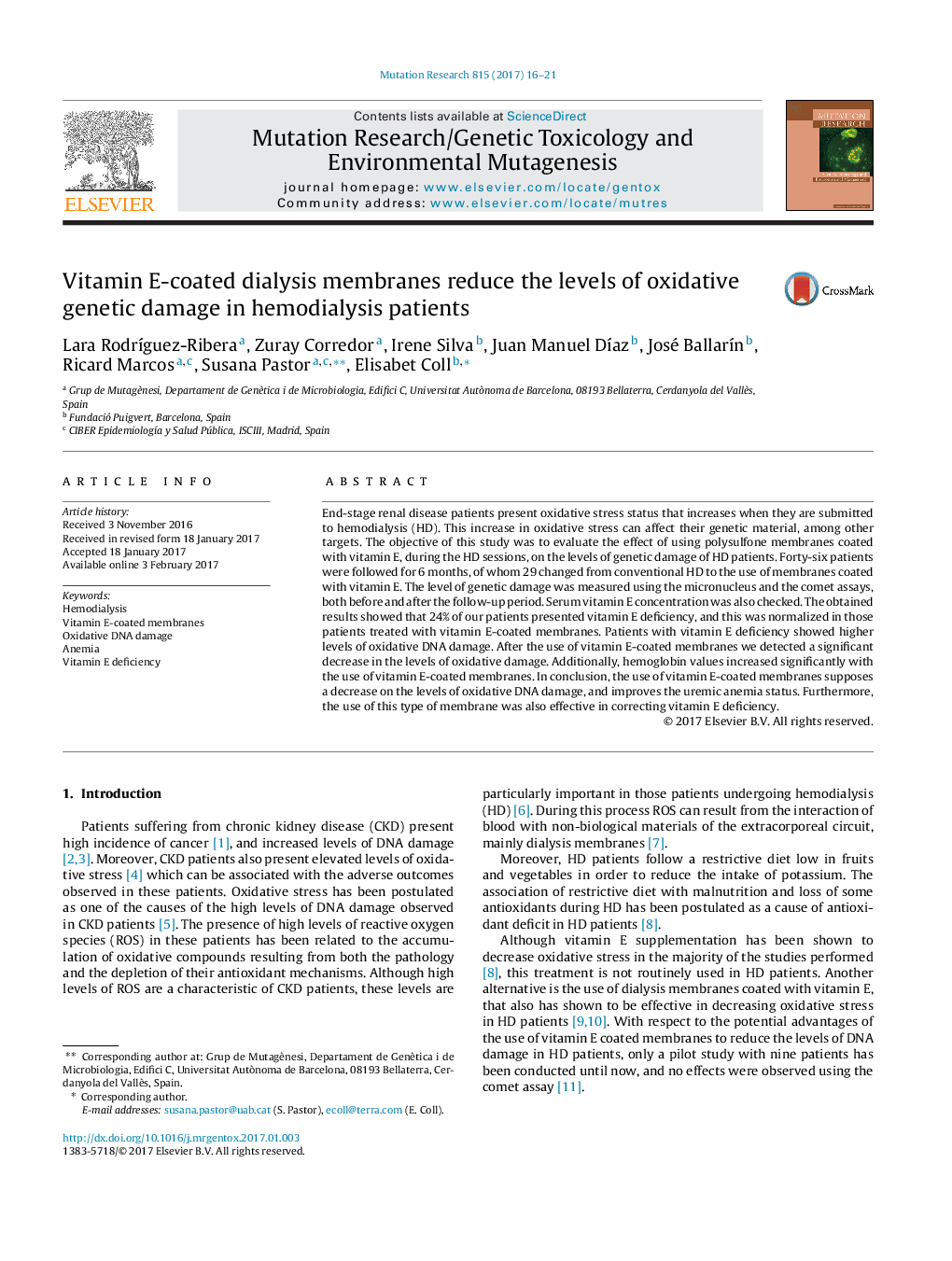| Article ID | Journal | Published Year | Pages | File Type |
|---|---|---|---|---|
| 5528749 | Mutation Research/Genetic Toxicology and Environmental Mutagenesis | 2017 | 6 Pages |
â¢Use vitamine E-coated hemodialysis membranes decrease the oxidative damage.â¢Hemoglobin values increased with the use of vitamin E-coated membranes.â¢The use of this membranes was also effective in correcting vitamin E deficiency.
End-stage renal disease patients present oxidative stress status that increases when they are submitted to hemodialysis (HD). This increase in oxidative stress can affect their genetic material, among other targets. The objective of this study was to evaluate the effect of using polysulfone membranes coated with vitamin E, during the HD sessions, on the levels of genetic damage of HD patients. Forty-six patients were followed for 6 months, of whom 29 changed from conventional HD to the use of membranes coated with vitamin E. The level of genetic damage was measured using the micronucleus and the comet assays, both before and after the follow-up period. Serum vitamin E concentration was also checked. The obtained results showed that 24% of our patients presented vitamin E deficiency, and this was normalized in those patients treated with vitamin E-coated membranes. Patients with vitamin E deficiency showed higher levels of oxidative DNA damage. After the use of vitamin E-coated membranes we detected a significant decrease in the levels of oxidative damage. Additionally, hemoglobin values increased significantly with the use of vitamin E-coated membranes. In conclusion, the use of vitamin E-coated membranes supposes a decrease on the levels of oxidative DNA damage, and improves the uremic anemia status. Furthermore, the use of this type of membrane was also effective in correcting vitamin E deficiency.
